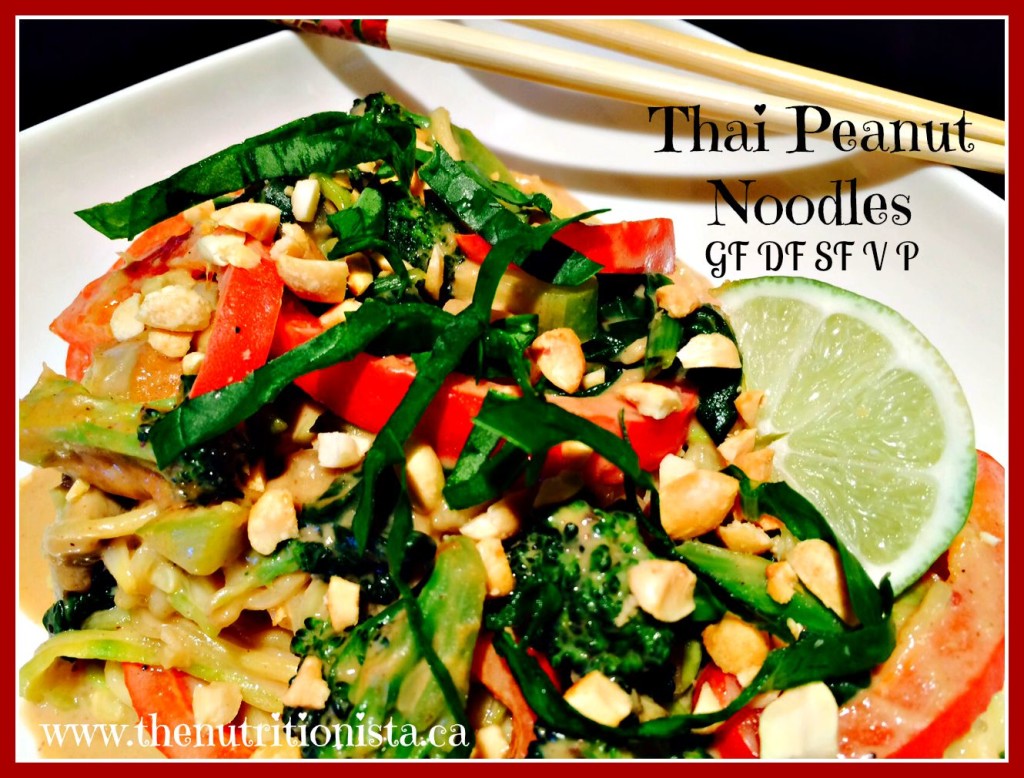“What are the different types of vegetarianism? What are the reasons why someone would choose to be a vegetarian?” ~ Meghan
Great questions! These are questions I have been asked many times throughout my life as a vegetarian, long before I became the Nutritionista.
What Is Vegetarianism?
Vegetarianism is defined as someone who does not eat animal flesh (red meat, poultry, fish or seafood) nor it’s derivatives such as gelatin, lard, broth or animal rennet. They may or may not eat non-flesh animal products like dairy, eggs or honey depending on their subtype (more definitions below.) Many vegetarians also avoid body care products containing animal ingredients, leather, fur and using products tested on animals. I highly recommend Juice Beauty products as an effective, gluten-free, organic, and both animal and environmentally friendly skin, haircare and cosmetic line. A well balanced vegetarian diet can be very healthy, but care should be undertaken to ensure optimal levels of B12, iron, zinc, omega 3, vitamin D, essential amino acids and calcium are obtained.
Why Go Veg?
Health and Ethics
There are many reasons why someone would choose to live a vegetarian lifestyle. Health is a major factor; plant-based diets have been shown time and time again in the literature to be a key factor in long term health, disease prevention, anti-aging and longevity and can even improve fertility. Ethics are also a major concern; the majority of meat, dairy, eggs and animal by-products in North America come from factory farms where millions of animals suffer tremendously in abhorrent, filthy and infectious conditions. It has been said that “if slaughterhouses (and factory farms for that matter) had glass walls we would all be vegetarian”, and I believe this is very true in most cases.
According to the FDA, over 80% of all antibiotics used in the United States are used in farm animals. This is a serious issue as more and more antibiotic-resistant bacteria such as MRSA, C. difficile, and E. coli among others are emerging every day leading to serious infections, astronomical health care costs and death. Antibiotic overuse and misuse among both humans and animals is the leading factor in the development of antibiotic-resistant bacteria. Furthermore, according to the CDC, some antibiotic-resistant infections can be directly transferred to humans from the foods we eat.
The Environment
The environment is also an important reason as livestock farming and transport leaves a massive carbon footprint on our earth. In fact, it is one of the main industry contributors to air, water and land pollution and greenhouse gas emissions. It is an incredibly inefficient, expensive and wasteful way to use land, energy and water resources when far more people could be fed with far less energy, damage and pollution if crops were grown for human consumption instead. For in-depth information about the unsustainable nature and environmental impact of the factory farming industry, I highly recommend checking out The Sustainable Table and Earthsave Canada.
If one does want to include animal products in their diet, support farms that are small, organic, antibiotic-free, free-range, ethical and local. Vote with your dollar: do not buy mass-produced, factory farmed products.
Other Important Veggie (and Non-Veggie) Definitions:
- Lacto-Ovo Vegetarian: A vegetarian who eats dairy and eggs.
- Lacto-Vegetarian: A vegetarian who eats dairy but does not eat eggs.
- Ovo-Vegetarian: a vegetarian who eats eggs but does not eat dairy.
- Vegan: a vegetarian who does not consume or use any animal products at all; including dairy, eggs, gelatin, honey, beeswax, leather, fur, enzymes or tallow. Strict avoidance of products tested on animals is also very common.
- Bee-gan: a vegan who eats honey
- Raw Vegan: a vegan who eats fresh, raw fruit, vegetables, nuts and seeds and does not consume anything heated above 118°F.
- Low Fat Raw Vegan: a raw vegan who follows a low-fat raw vegan eating style, typically 80% carbohydrate, 10% protein and 10% fat. This is typically the raw vegan eating style that many find transforms their health significantly for the better.
A Couple of Common Areas of Veggie Confusion…
- Pescatarian: Someone who does not eat red meat or poultry but eats fish and/or seafood. They may or may not eat dairy or eggs. This is not a form of vegetarianism.
- No Red Meat: Someone who does not eat red meat but does eat poultry, fish and seafood. They may or may not eat dairy or eggs. This is not a form of vegetarianism.
- Flexitarian: An increasingly popular trend where someone who eats meat (including pescatarians and those who don’t eat red meat) often enjoys meatless meals at least several times a week to improve their health and reduce their carbon footprint. This is an excellent option for those who want to lean more towards a plant-based diet but are not ready to fully commit to vegetarianism.
Are you a vegetarian? Why or why not? Which of these eating styles works best for you? Let me know in the comments below and on Facebook – I love hearing from you!
—
Love what you are reading? Stay in the loop and never miss a recipe; subscribe to our FREE Nutritionista ezine for free expert tips, success strategies and delicious healthy recipes and receive Erin’s exclusive guide of the Top Ten Foods to Banish From Your Kitchen ($24.99 value) absolutely free! Get ready to nourish yourself sexy!
You might also like…
© 2013 Nutritionista. Erin Luyendyk RHN. All rights reserved.
All material found on www.thenutritionista.ca is intended as general educational material only and should not be considered medical or nutritional advice. It is not intended to diagnose, treat, or cure any medical condition and has not been evaluated by the FDA. Please consult with your personal physician before implementing any health, nutrition, supplement or exercise program to ensure its safety and suitability for your specific individual situation


